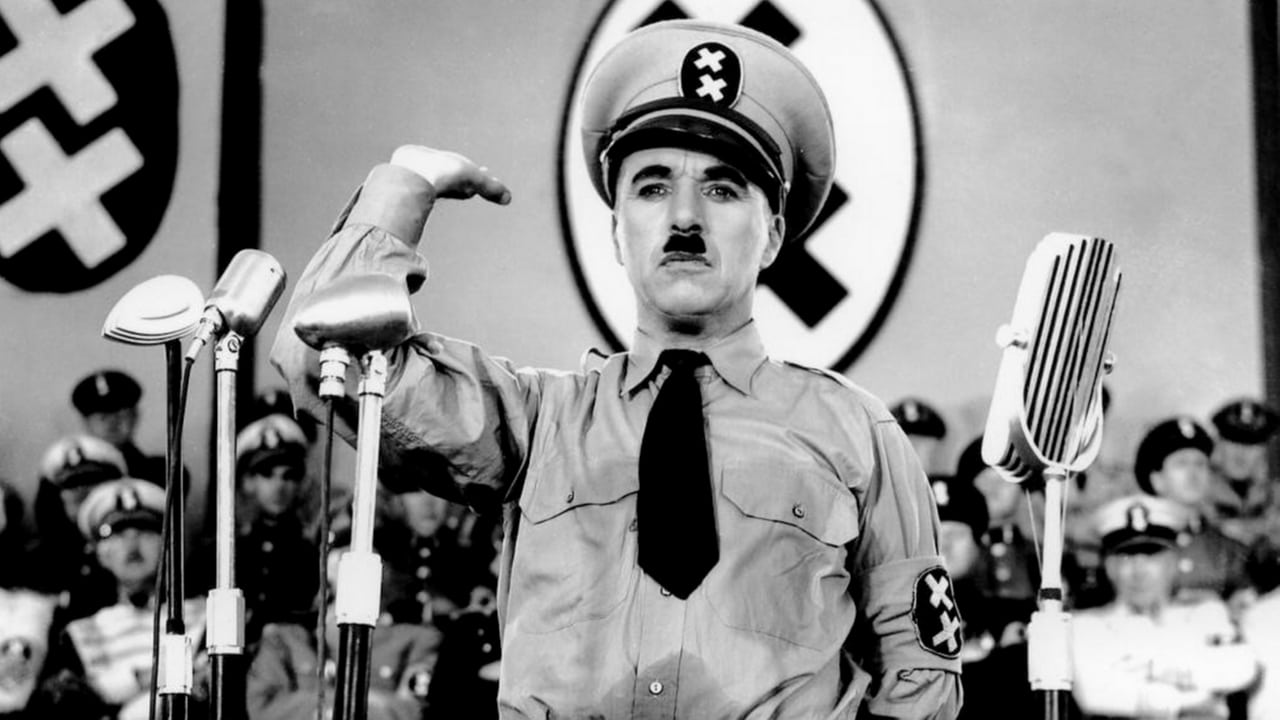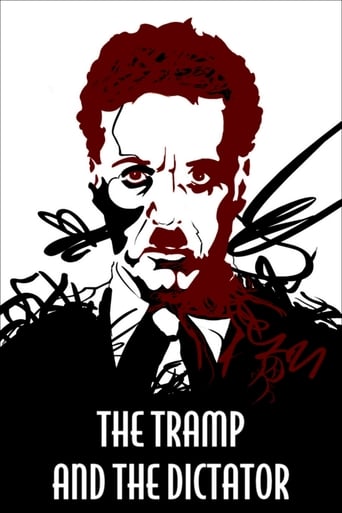

. . . THE MAKING OF THE GREAT DICTATOR, 1939 - 1940, on Criterion's DVD package for THE GREAT DICTATOR, but it does not seem to have a separate home page at this site, and I'm sure that anyone who has watched THE TRAMP AND THE DICTATOR also will want to view these home movies filmed by Charlie's son. Cumulatively, these pieces last about 26 minutes, and are broken down into five chapters entitled: "The Ball," "Deleted Final Scene," "Fall Down the Stairs," "The Ghetto," and "World War One." Some insights into the actual feature film are revealed here. In "Deleted Final Scene," for instance, we see that it is so hot that some of the film crew are running around shirtless (the men, NOT the women, of course). These scenes also are filmed by Sydney Chaplin in color, revealing uniform details not included in the feature. Fans of historic artillery are sure to appreciate the Big Bertha Behind-the-Scenes of the final segment, as well.
... View More" . . . who did not want Peace," after World War Two, such as the American Legion, acclaimed writer Ray Bradbury says near the end of THE TRAMP AND THE DICTATOR, a nearly hour-long Criterion documentary on Charlie Chaplin's most important film, THE GREAT DICTATOR. Though this piece is as good as far as it goes, many viewers--such as myself--will want to do follow-up research about WHY Chaplin became banned from America despite making this movie, which spelled the beginning of the end of the Axis, Hitler, and Mussolini. What they will discover is that America was as nearly divided in the 1920s and 1930s as it is Today. Armies of World War I vets marched in West Virginia, shooting it out with the stooges of the Fascist Mine Managers. Though most of Hollywood was Anti-Hitler, an eventually-triumphant subset led by director John Ford and his protégée, the notorious draft dodger John Wayne, backed the Fascists. Just as the Rich People's Party specializes in Voter Suppression, Unconstitutional Supreme Court Jiggering, and Promotion of Wealth Disparity Today, so too did this Cabal led by Ford and Wayne target Chaplin and all the other Champions of Freedom before the final A-Bomb echoes of WWII had died away. Too bad Criterion did not highlight this more here.
... View MoreThis film was spurred on by Charlie Chaplin's film "The Great Dictator"--a film in which he made fun of but also warned the world of the evil beast, Adolph Hitler. And, not surprisingly, it is included on the DVD for "The Great Dictator".It begins by discussing similarities between the two men--such as being born the same month of the same year. And, how the two were polar opposites--Hitler was never accused of being the funniest man on the planet. However, much of the film was not about their similarities and differences but was more of a 'making of' featurette. It discussed such things as the obsessive nature of Chaplin and his directorial style as well as the reaction to the film when it was released.My reason for watching this, more than any, was that it was made by Kenneth Brownlow--one of the foremost experts on silent comedy and who had created the very best documentaries on Chaplin, Keaton and Lloyd. Secondly, I love Chaplin's full-length films--though I should admit that "The Great Dictator" is among my least favorite of these films. Folks who adore this film would probably get a bit more out of the documentary. I also really preferred his film "Unknown Chaplin" (also by Brownlow) as it gave much more insight into Chaplin's directorial style. Still, it's well worth seeing and offers a few really nice insights into "The Great Dictator".
... View MoreCharles Chaplin was a world-renowned comedian who made several masterpieces.Adolf Hitler was his total opposite.But they did have something in common.They were both born in the same week of the same year, 1889.But as persons they were nothing alike.Chaplin was a humanitarian while Hitler was a cold-blooded murderer.Hitler's main target was the Jews, as we all know, and so many of them had their final destination at the concentration camp.He thought Chaplin belonged to the Hebrew race and Charles was called a "disgusting Jewish acrobat.Chaplin went and made a satire called The Great Dictator (1940).The Tramp and the Dictator (2002) tells a little about that classic, narrated by Kenneth Branagh.Many fascinating people talk about their relationship with Chaplin and this film.It's most enjoyable to listen to Budd Schulberg talk about Chaplin and the movie.He's a 95-year old author, a screenwriter and some other things, who's written stuff like The Disenchanted and Waterfront.We learn from this man, who was present at the Nuremberg trials, that he noticed The Great Dictator being mentioned twice in a list of films that had been sent to Hitler.Also Reinhard Spitzy, a member of Hitler's inner circle is convinced The Fuhrer did see the film.Charlie's son, Sydney Chaplin is there sharing his memories.Sadly, Mr. Chaplin died last March at the age of 82.He's remembered working with his father in two films, Limelight (1952) and A Countess from Hong Kong (1967).The blacklisted screenwriter and producer Walter Bernstein, who's 90 now, has a few things to say.Ray Bradbury says that "Comedy is the greatest way to attack a totalitarian regime".Historian Arthur Schlesinger Jr. has something to say, so does caricaturist Al Hirschfeld and film critic Stanley Kauffman.Nikola Radosevic is a Yugoslav, who worked as a film projectionist during the war.German troops saw a bit of that movie, until an SS officer started shooting at the screen.We also hear the film director Sidney Lumet.He actually attended the film's world premiere.In archive footage we see people like Oona Chaplin, D.W. Griffith, Mary Pickford, Douglas Fairbanks and Henry Ford.And sure there's footage of Hitler and Mussolini.The film includes a remarkable footage in color, that shows the making of The Great Dictator.It was found in a suitcase in the cellar of Chaplin's Swiss home.We learn that he planned a completely different ending to the film, with soldiers breaking into a folk dance.The footage shot by the comic's elder brother Sydney shows us the strict directing ways of Charles.For film buffs like me, this documentary is a must-see.You learn so much of this classic known as The Great Dictator.
... View More